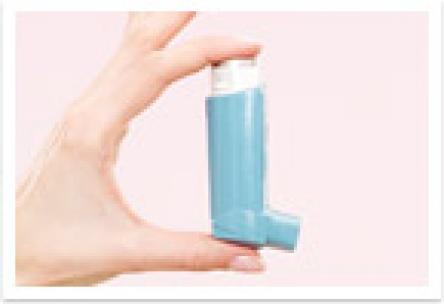7 ways to breathe easier this winter

Winter can be a tough time for people with asthma. “They are more likely to catch a cold, which is the number one cause of asthma flare-ups,” says Paul Williams, M.D., of the Northwest Asthma & Allergy Center in Seattle.
Spending more time cooped up indoors doesn’t help either. “Houses are more closed up, with exposure to indoor allergens such as dust mites and pets,” which can trigger asthma, Williams says. Many people with asthma also note an increase in symptoms when they breathe cold air. Fortunately, there are steps you can take to keep your condition at bay after temperatures fall.
See your doc before winter begins. “Having your asthma under control is the best way to prevent increasing symptoms,” Williams says. Make an appointment with your asthma care provider to review your symptoms. Ask if you should make changes to your asthma action plan. Always know what steps to take to get an attack under control.
Resist colds. Upper respiratory infections are a major cause of asthma flare-ups. Talk to your doctor about cold and flu prevention. You may need to increase the amount of controller medication at the start of a cold. Make it a priority to get a flu shot, and ask your doctor if you should get the pneumonia vaccine. Drink plenty of fluids throughout the day.
Wash your hands frequently. This prevents the spread of germs that can cause a respiratory infection. Scrub with soap and water, and dry your hands thoroughly on a clean paper towel (or air-dry them). Use an alcohol-based hand sanitizer if soap and water aren’t available. Avoid touching your eyes, nose, and mouth.
Check heating and air filters. Home heating systems can circulate dust or debris, especially when first turned on for the season. These particles can irritate your lungs and cause an asthma attack. Have your heating system checked by a professional, particularly if you heat with wood.
Warm the air. If cold air is a problem for you, try using your short-acting bronchodilator before going out. Wear a scarf or muffler to cover your mouth and nose to help warm the air before it enters your lungs. If cold air makes your symptoms worse, stay inside. Keep your exercise regimen indoors.
Avoid smoke. As tempting as it is to sit by a toasty fire on a winter’s eve, the smoke can irritate your lungs and trigger your asthma. Stay only in smoke-free rooms. Walk away from tobacco smokers.
Limit exposure to pets. Keep them out of your bedroom. If you’re visiting someone with a pet, inform them about your asthma and consider politely requesting a pre-visit vacuum session. When booking a place to stay, ask about pet-free rooms.